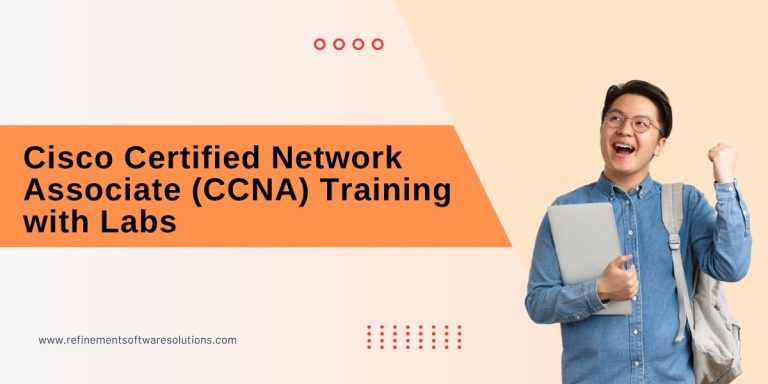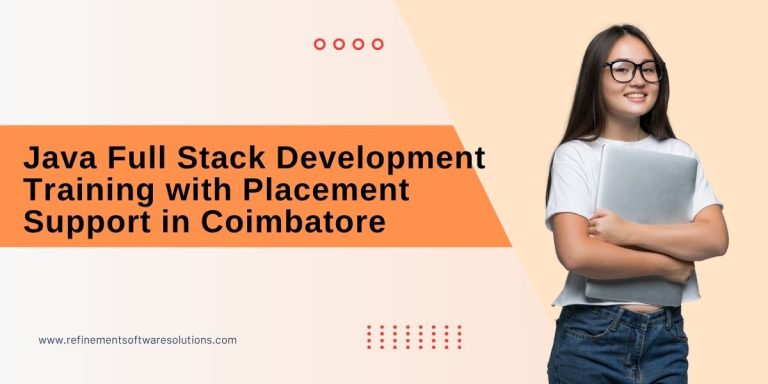Table of Contents
ToggleThe demand for Java Full Stack Developers is booming in 2025, especially as companies look for professionals who can manage both the front-end and back-end of web applications. Whether you’re a fresher preparing for your first interview or a working professional aiming to switch roles, cracking the interview is a crucial step.
The first step toward acing your interview is to equip yourself with in-depth knowledge and hands-on experience. Enrolling in a practical Java Full Stack Developer Course in Coimbatore is one of the best ways to gain this expertise. These courses are designed to cover the entire development lifecycle and include real-time project work, which is often the basis for interview questions.
Below are the Top 10 Interview Questions (with detailed answers) you are most likely to face in 2025, especially in product-based companies and high-growth startups.
1. What is Full Stack Development, and why is Java preferred for it?
Answer:
Full Stack Development refers to the development of both front-end (client-side) and back-end (server-side) components of a web application. A Java Full Stack Developer is proficient in technologies like HTML, CSS, JavaScript (for front-end), and Java, Spring Boot, REST APIs (for back-end).
Java is preferred due to:
- Platform independence
- Strong ecosystem (Spring, Hibernate, etc.)
- Community support
- Scalability and performance
2. What are the major components of the Spring Framework?
Answer:
Spring Framework is one of the most widely used back-end technologies for Java Full Stack Developers.
Key components include:
- Spring Core: Provides the core features such as dependency injection (DI).
- Spring MVC: Enables model-view-controller architecture.
- Spring Boot: Simplifies configuration and deployment.
- Spring Data JPA: Integrates data handling with databases.
- Spring Security: Provides security features like authentication and authorization.
In many Java Full Stack Developer interviews, Spring Boot and REST API-related questions are frequent.
3. Explain the difference between REST and SOAP APIs.
Answer:
REST | SOAP |
Lightweight, stateless protocol | Protocol-heavy and requires more bandwidth |
Uses JSON (typically) | Uses XML |
Faster and easier to scale | More secure and robust |
Ideal for web applications | Common in enterprise apps |
In modern development, REST APIs are more common and are often taught in detail in a Java Course in Coimbatore, especially with hands-on API-building sessions using Spring Boot.
4. What front-end frameworks and tools should a Java Full Stack Developer know in 2025?
Answer:
In 2025, a Java Full Stack Developer is expected to be familiar with:
- HTML5, CSS3, JavaScript (ES6+)
- React.js or Angular (React is trending more)
- Bootstrap or Tailwind CSS
- Redux for state management in React
- Webpack, Babel, and NPM/Yarn for managing packages and builds
These tools are an essential part of Java Fullstack Training in Coimbatore, where students build complete front-end interfaces using these technologies.
5. What is Dependency Injection in Spring, and why is it important?
Answer:
Dependency Injection (DI) is a design pattern used in Spring to reduce the tight coupling between software components. In DI, the dependencies (objects or services) required by a class are injected by the Spring container at runtime rather than the class creating them itself.
Why it matters:
- Promotes loose coupling
- Increases testability and reusability
- Makes code more modular and maintainable
6. How does Hibernate simplify database interaction?
Answer:
Hibernate is an Object-Relational Mapping (ORM) tool that simplifies database operations in Java.
Key Benefits:
- Automatically maps Java objects to database tables.
- Eliminates the need for boilerplate JDBC code.
- Supports automatic data validation and transaction management.
- Enables lazy loading and caching, which optimizes performance.
Hibernate is widely used alongside Spring Boot and is often covered in full stack training courses in Coimbatore, where students learn to interact with databases using Hibernate and JPA.
7. What is the use of JWT in Java Full Stack applications?
Answer:
JWT (JSON Web Token) is used for authentication and authorization in modern web applications.
Usage:
- When a user logs in, a JWT is generated and sent to the client.
- This token is then attached to every subsequent request to validate the user’s session.
- JWTs are stateless and can be verified without storing session data on the server.
Security implementations like JWT with Spring Security are part of many advanced modules in Java Fullstack Training in Coimbatore.
8. How do you optimize the performance of a Java-based web application?
Answer:
Performance optimization involves both front-end and back-end techniques:
Back-end:
- Caching with Redis or Ehcache
- Efficient use of database queries
- Connection pooling (HikariCP)
Front-end:
- Lazy loading of components
- Code splitting in React
- Compressing assets (CSS/JS)
Full stack tip: Always test performance using tools like JMeter, Lighthouse, and New Relic.
9. Describe your understanding of Git and GitHub.
Answer:
Git is a distributed version control system used to track changes in source code. GitHub is a hosting platform for Git repositories and allows collaboration across teams.
Key Concepts:
- Clone, Commit, Push, Pull
- Branching and Merging
- Pull Requests and Code Review
Most companies now expect developers to be proficient in Git workflows. Every it course institute in Coimbatore offering full stack programs includes GitHub project collaboration as part of its curriculum.
10. What projects have you worked on as a Java Full Stack Developer?
Answer:
Interviewers want to assess your practical experience.
A strong answer:
“In my last project, I built an e-commerce application using React.js for the front-end and Spring Boot for the back-end. I used MySQL for the database and implemented JWT-based authentication. I also set up a CI/CD pipeline using GitHub Actions and deployed the app on AWS EC2.”
If you’re currently in training, you can say:
“As part of my course at a leading it course institute in Coimbatore, I built a full-fledged Student Management System that allowed CRUD operations, used Spring Boot REST APIs, and React for UI.”
Bonus Tips for Cracking Java Full Stack Developer Interviews
- Know the basics cold – Interviewers will test your Java fundamentals.
- Showcase your GitHub portfolio – It adds weight to your resume.
- Brush up on DSA (Data Structures & Algorithms) – Often included in the screening round.
- Understand the MVC Pattern, REST, and microservices architecture.
- Practice common coding problems on platforms like LeetCode and HackerRank.
Why Local Training in Coimbatore Gives You an Edge
If you’re serious about preparing for interviews, enrolling in a Java Full Stack Developer Course in Coimbatore helps you gain hands-on experience. Institutes here offer:
- Industry-relevant curriculum
- Capstone projects
- One-on-one mentorship
- Mock interviews and resume support
Most programs also include a strong foundation in front-end, back-end, and database technologies, making it easier to answer technical questions with confidence.
Further, a Java Course in Coimbatore helps you reinforce your fundamentals with guided lab sessions and interactive learning methods.
Whether you’re a fresher or a working professional, you’ll benefit from the Java Fullstack Training in Coimbatore that blends theory with real-world application — an ideal combination for interview preparation.
Final Thoughts
Becoming a Java Full Stack Developer in 2025 requires technical depth, hands-on practice, and interview preparation. Most importantly, employers are now prioritizing candidates who can demonstrate project experience and a problem-solving mindset.
If you’re just getting started or looking to sharpen your skills before your next interview, joining a reliable IT course institute in Coimbatore could be the smartest move you make.
Remember, interviews aren’t just about knowing answers — they’re about communicating clearly, solving problems efficiently, and showing your ability to build scalable applications.
Start preparing today and land your dream Java Full Stack job tomorrow.




